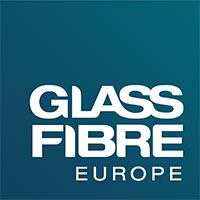Aegis Europe, the association representing the interests of the manufacturing industries in Europe, released its assessment of the “State of the Industry” and policy recommendations. The report underlines the difficult time the European industry is facing and how a weakened industry makes the entire European economy vulnerable.
The report presents several policy recommendations to the European Commission to strengthen Europe’s industrial resilience. The measures are structured in 4 pillars: Trade policy, Energy policy, Single Market & Industrial policy and Climate policy. The report is available below.
Some of the recommendations are crucial for the growth of the European glass fibre manufacturing industry and its value chains and for the overall economic security of the European Union. In particular, the glass fibre industry calls on the legislator to consider a rapid implementation of the following measures listed in the report:
- Strengthening the trade defence tools to level the playing field with third countries through much more robust and faster enforcement of existing trade defence mechanisms and the introduction of new measures and instruments.
- When trade defence measures are in place, conduct effective custom controls of imports to prevent circumvention.
- Ensure the energy prices allow manufacturing companies to stay competitive.
- Ensure access to secure, low carbon energy sources at reasonable and competitive prices.
- Secure the necessary financial support for industries contributing to the energy transition, EU security and defence policy.
- Enhance Europe’s strategic autonomy on raw and constituent materials for strategic applications and reduce dependency on unpredictable, unreliable and unsustainable trade partners.
- Adopt policies that favour EU content in critical sectors and their value chains.
- Complete the NZIA through the introduction of clear definition of value chains including all materials, subcomponents, and downstream sectors critical and strategic for the decarbonisation of the EU’s economy.
- Provide for funding and support schemes for both CAPEX and OPEX to boost reduction of carbon emissions, in particular EU funding, state aids, tax incentives and carbon contracts for difference.
- Indirect cost compensation must be broadened to include all the energy-intensive sectors with a potential for electrification in decarbonising their production processes.


